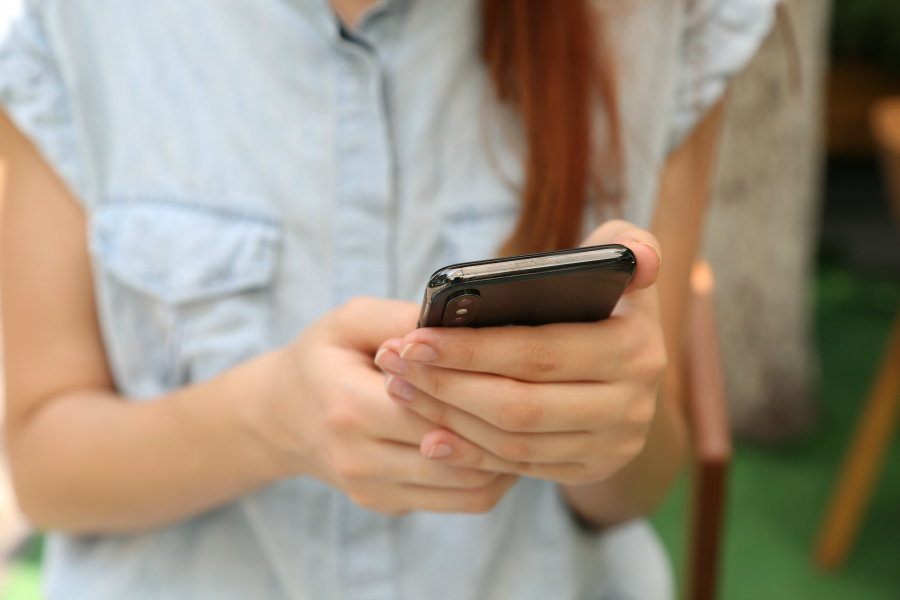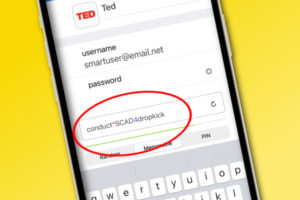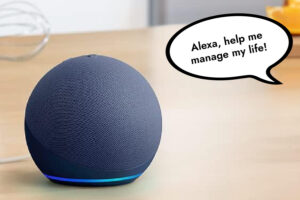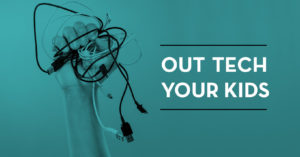A few weeks ago, my youngest was angry with me about losing her iPad privileges, and in her fit of rage yelled “I bet you couldn’t be without your phone for 12 hours.” We all know that the truth hurts, but to hear it out of the mouth of your child cuts deeper.
It’s natural to become focused on our own kid’s screen time, (or other peoples’ kids, for that matter) because as our recent Spawned guest Dr. Brooks pointed out, it’s much easier to see the problem in someone else versus in your own self. He also said that in managing our kid’s screen time, we really need to get a handle on our own, which as we all know is easier said than done, especially if you’re like me and you use it extensively for work.
As much as I find myself wanting to put my phone down, and doing all the things experts tell you to do, like plug it in when you get home from work and leave it there (been there), or turning off all your notifications (done that), I’m too easily tempted to grab it. At first, I rationalized that it was because I needed it for work, and that’s not entirely untrue. I work a lot to support my family, and the phone allows me to do that flexibly.
But too often checking Facebook for work turns into mindless scrolling, and suddenly I’ve lost an hour of precious time. This hits me the hardest when my kids are home. As much as I know being present for them is much more important than seeing what some random person I’m following ate today, the siren call is too strong.
The irony of all this is that I’ve got a pretty decent handle on screen time with my own kids. They’re rarely on for more than an hour a day, save my tween son who cleverly jumps back and forth between texting and Facetiming friends to terrible gaming videos on YouTube. But my kids can survive without their gadgets, and do well with the balance.
Me on the other hand? Well, I’m staging my own intervention.
I’m fortunate that I have the opportunity to chat with many screen time experts and book authors so creating strategies that can work is not the problem. Here are a few I’ll be attempting over the next few weeks. If you’re struggling like me, feel free to join me in this journey.
Related: 5 things I learned when I put my phone away around my kids
Say what you’re doing out loud.
During a podcast episode with author Anya Kamenetz, she mentioned a technique a friend of hers uses to help curb her own screen time use. Put simply, every time she’s on her phone around her kids, she says exactly what she’s doing. So, if she’s checking work email, she says that out loud. And if she’s just scrolling through Facebook, she says that too. This works two-fold in that it educates your kids on what you’re doing since kids tend to think all screen time is play time. And, it calls your attention to the times you’re truly wasting time on your phone. It’s a smart, simple way to hold yourself accountable, and educate your kids.
For many of you, the Screen Time app on iOS12 will help you keep an eye on the amount of time you’re spending on your phone. But if you work on your phone like I do, it’s not a completely accurate indicator of everything that you’re doing.
Make sacred spaces
Putting my phone away isn’t always an option for me, and I know that’s the case for many of you. If you are able to create a central charging hub and plug your phone in for the night, I highly recommend this idea.
However, as Dr. Brooks mentioned in our recent Spawned podcast, you can create sacred spaces in your home where your phone is just not allowed. For me, the dinner table is a 100% screen-free zone. But I’m also making the couch and the bed sacred spaces too.
My hope is to work my way up to specific rooms, but for now, there’s something very liberating about creating boundaries for yourself, even if they’re just pieces of furniture. In doing this, you’re also sending the message to your kids that you have values above your phone and what’s on it. In what’s becoming an always-on society, this is important for them to see.
And you’re telling your colleagues and employer that you’re not online 24-7. Chances are, you’re not paid to work those many hours, so why exactly are you basically working them?
Related: 3 gadgets that could help curb your smartphone addiction
Take away your phone’s usefulness
When the iPhone first launched, we here at Cool Mom Tech espoused its ability to take on the function of many different gadgets. And while we still standby that statement, particularly as it applies to parents who do often need to multi-task, it can definitely make life without it a whole lot harder. If you’re able to just use it as an alarm clock and not pick it up to check your email and Facebook feed first thing in the morning, more power to you. But for many of us, grabbing it because you need to listen to music, or take a photo, also means you’re sucked into check everything else as well.
You have to do what works for you within reason, of course, because there’s just no way I’m going to be carrying a camera and an mp3 player around with me all the time. But, I can use a GPS in my car so I’m not taking any calls while I’m driving, even if I am able to go hands free. And, I’m investing in an alarm clock so my phone is nowhere near me until I’m ready to start work. Yes, it’s an added expense, and requires more work, in a way, but if it helps you untether yourself from your phone, it’s worth a try.
Photo by Yura Fresh on Unsplash






